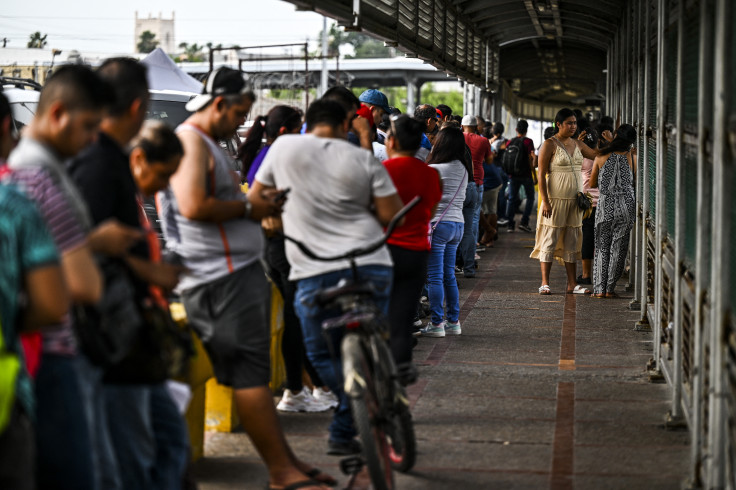
President Donald Trump campaigned on the idea that the government was spending more on immigrants, particularly on undocumented ones, than on native-born American citizens. However, a new study proves this to be wrong.
A recent study by the Cato Institute found that immigrants claimed 54 percent less in benefits from the federal government than native-born citizens. The number was calculated through the Census Bureau's 2023 Survey of income and Program Participation (SIPP), which examined the year 2022.
According to the study, in 2022, total government spending on the welfare state amounted to about $3.1 trillion. That year, the federal government spent roughly $2.8 trillion on welfare and entitlement programs, an amount equal to approximately 45% of all federal outlays.
From that number, the government only spent about $109 billion on non-citizens— including, but not exclusively, undocumented migrants.
The study looked at means-tested welfare programs, which are intended to aid people in poverty of any age. Eligibility for those programs and the value of their benefits are based on various factors, including the recipient's immigration status, income and employment.
The Cato study looked particularly at programs like Medicaid, the Supplemental Nutrition Assistance Program (SNAP), Supplemental Security Income (SSI), Temporary Assistance for Needy Families (TANF), the Special Supplemental Nutrition Program for Women, Infants and Children (WIC), and the earned-income tax credit (EITC).
"It's a very small percentage, it's much smaller than their share of the population would suggest," Alex Nowrasteh, vice president for economic and social policy studies at the Cato Institute, told Newsweek on Wednesday. "They use about 3.5 percent of benefits, but they're over 7 percent of the population, but there is still scope for reducing their benefit access by restricting welfare to just citizens in the United States."
More specifically, the study found that noncitizens were claiming $4,564 per capita, compared to $9,623 for native-born citizens and $11,135 for naturalized immigrants, those who have become citizens, a demographic that is generally older.
"We want the general message that, hey, immigrants are not a drain on the welfare state, they consume less than native-born Americans, so that narrative is false, but there are still savings that can be captured," Nowrasteh wrote.
Non-citizens also received far less in Social Security benefits than the other two groups, at an average of $629.38 in a year. The demographic also came last in totals for nearly all other benefits analyzed, except for Medicaid, where the average $2,099.51 came in just behind $2,504.10 for native-born Americans.
The study comes on the heels of the 2024 election campaign, where now-President Donald Trump focused on the issues, claiming the government was spending too much money on undocumented migrants. At the same time, this week the president issued an order preventing taxpayer money from supporting immigrants without legal status.
That order says it will end "all taxpayer-funded benefits for illegal aliens." It does not clarify exactly which benefits will be targeted, but directs agencies to identify federally funded that do so.
© 2025 Latin Times. All rights reserved. Do not reproduce without permission.




